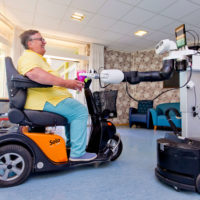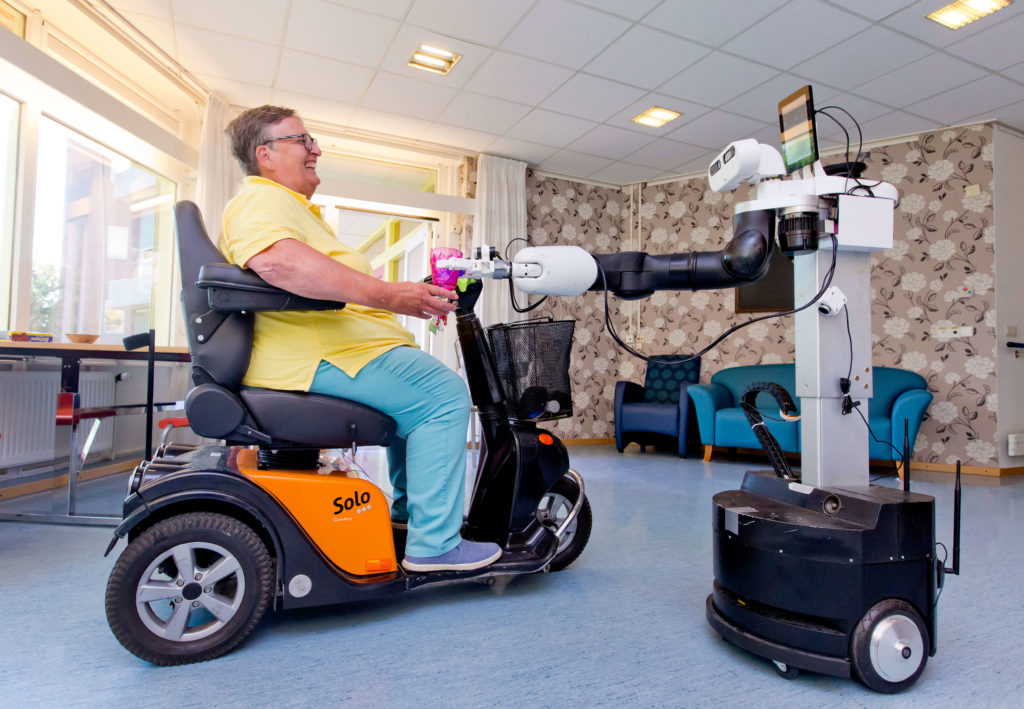
New Version of Robot Rose Tested at Dutch Care Home
In the period February - July 2018, Heemskerk Innovative Technology (HIT) performed a series of application tests with a new version of robot ROSE Robot at the Dutch care home Pieter van Foreest, location De Bieslandhof in Delft.
ROSE is a care robot intended to perform simple service tasks in support of clients and care staff.
In close cooperation with the care staff at Pieter van Foreest, and with support from the Medical Delta Living Lab Care Robots, the test provided new insights in the actual care support demand from clients, the robot performance, and about the acceptance by care recipients and health personnel.
What did ROSE do?
During the test campaign, Robot ROSE performed various tasks, such as fetching objects from the kitchen and setting the breakfast table. At the request of the clients, ROSE demonstrated picking up objects from the ground, such as medicine cups or the TV remote control. These operations were performed by tele-operation, with the robot arm under control from a remote operator.
ROSE also demonstrated autonomous navigation, moving around the corridor and living room, while automatically avoiding obstacles, a key capability for the robot to become useful within health care institutions. Finally, ROSE enabled clients to contact relatives at a distance via image and audio.
A summary of the tests performed can be viewed in the video below this article.
How does ROSE work?
During operations with the robot arm, ROSE was remotely controlled by an experienced operator. The role of the remote operator will slowly decrease as the robot is becoming more autonomous..
ROSE can only perform relatively simple actions, but this will free up time for health care staff, leaving more time to spend with the client. Ultimately, ROSE will work independently, providing logistic support to the health care staff while always being ready for the client when he asks for help.
What is next?
Pieter van Foreest, HIT and the Medical Delta Living Labs intend to continue the testing with ROSE. In the mean time, Rose needs to be developed further. One important aspect is to improve the quality of the communication between robot and client. During the development process, the continued active participation and involvement of clients and the health staff is paramount.

Care robot Rose during the tests at Pieter van Foreest, location Bieslandhof in Delft (photo: Jeroen Poortvliet)
